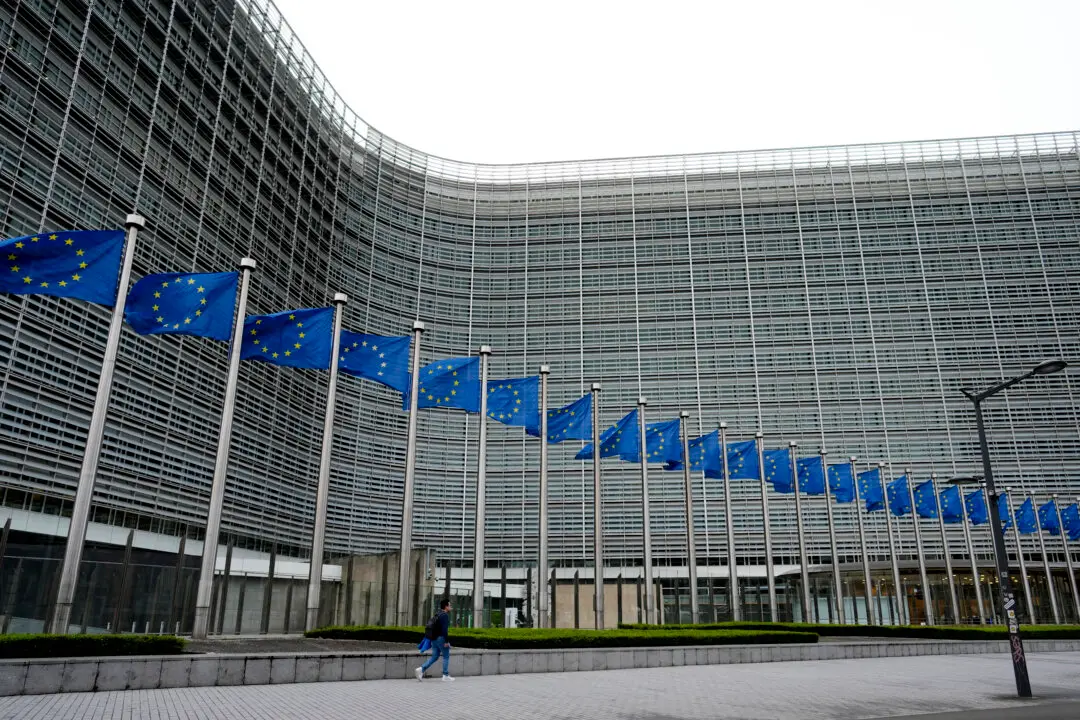The European Commission, which coordinates EU trade policy, expects to present a plan early next week for the bloc’s next move in response to wider import tariffs imposed by the United States, a spokesperson for the body said on April 8.
The 27-nation bloc faces 25 percent import tariffs on steel, aluminum, and cars, as well as new, broader “reciprocal” tariffs of 20 percent on almost all other goods, under President Donald Trump’s policy targeting countries that impose high barriers to U.S. imports.





